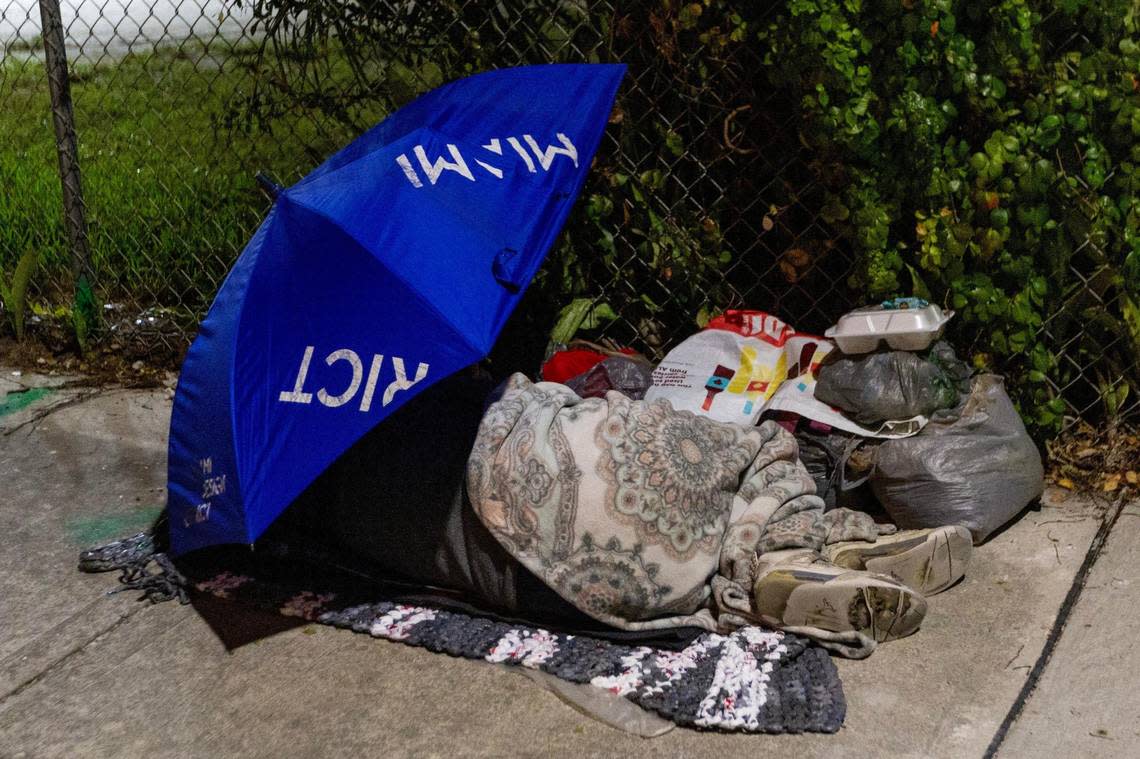Status quo on homelessness ‘not an option.’ Florida bill offers help, aids communities | Opinion

In Florida, we are blessed to have a citizen Legislature. This means that my fellow representatives and our senators live, work and play in the communities we call home. We see what is happening in every part of our state and, hopefully, have the courage to take bold action during our time in Tallahassee.
One of the things that we all agree on, regardless of political affiliation, is that chronic homelessness in Florida is on the rise. If we do nothing, the problem will only get worse in both human and economic costs. We will not stand by and watch Florida’s great cities become San Francisco, Los Angeles, Denver and New York. Simply put, the status quo is not an option.
This year, the Legislature passed House Bill 1365: Unauthorized Public Camping and Public Sleeping in response to this impending crisis. This bill protects our shared public spaces while simultaneously respecting the dignity of every human being. It states unequivocally that no one should fend for their own on the streets without access to basic services, especially those who through circumstances outside their control find themselves ravaged by addiction, mental illness or both. It is a uniquely Florida model, utilizing both carrot and stick, and will both protect our communities and offer help to those who truly need it.
This bipartisan legislation, which now awaits Gov. Ron DeSantis’s signature, prohibits counties and cities from allowing extended sleeping or camping on public property. This is done with the goal of preserving our public parks, libraries and even our downtown sidewalks. For cities, businesses and communities to thrive, these public spaces must be protected.
The bill also allows counties and municipalities to designate a specific area for public camping when there is insufficient shelter space to accommodate those in need. It also imposes necessary safety protocols, such as 24-hour security, basic sanitation and access to behavioral and mental health services.
While some critics have decried this as too expensive or not addressing the root causes of homelessness, it rather demonstrates our commitment to the humane treatment of our brothers and sisters in crisis. It also contrasts with the current practice of telling the homeless to fend for themselves while the “experts” wax eloquently about magically producing housing for all.
The Florida model has the potential to be a game changer because it lets each of Florida’s 67 counties and their cities decide which solutions work best for their communities while setting standards and providing guardrails. The needs of Clay County are vastly different from those in Broward, Palm Beach and Santa Rosa. Our vision is to give locals flexibility to address homelessness in their own way while setting clear expectations regarding minimums standards that must be followed statewide.
As chair of the House Health Care Appropriations Subcommittee, I can attest that we as a state have chosen to put our money where our mouth is. Our homelessness initiatives are one part of a multi-faceted effort this year that includes a comprehensive modernization of Florida’s Baker Act statute, a groundbreaking law establishing behavioral health teaching hospitals throughout the state, and a 10-fold increase in grant funds to local continuums of care that provide services to Florida’s homeless population.
With a challenge as complex and pervasive as chronic homelessness, it is all too easy to fall into the trap of comfortable inaction. In Florida, we will learn from the mistakes of our friends across the nation who are paying the price for their inability to act. This is not a perfect bill. It will not eliminate homelessness. But it is a start. And it states clearly that in Florida, the status quo is not an option. We must act now. It is the right thing to do.
Florida Rep. Sam Garrison (R-Fleming Island) serves as the chair of the Health Care Appropriations Subcommittee in the Florida Legislature.


